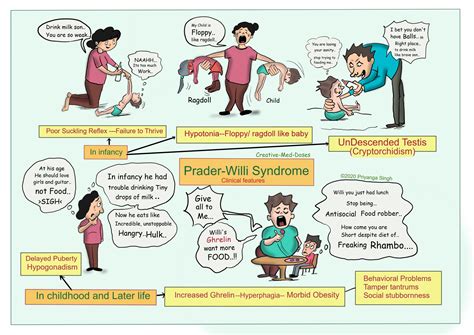prada wilson syndrome | prader willi syndrome ncbi prada wilson syndrome Signs and symptoms of Prader-Willi syndrome can vary among individuals. Symptoms may slowly change over time from childhood to adulthood. See more The Chess Lv.100. 1.3.5.0. free 8.2 235 Verified Safety. With The Chess Lv.100 you'll have a classic chess game with a appealing design with which you can play chess games adapted to your level of experience. Advertisement. Download. Free for PC. Chess game for Windows. Elies Guzmán. November 30, 2020. 8 / 10.
0 · prader willi syndrome sleep disorder
1 · prader willi syndrome prevention
2 · prader willi syndrome ncbi
3 · prader willi syndrome history
4 · prader willi syndrome fact sheet
5 · prader willi syndrome children
6 · prader willi syndrome causes
7 · prader willi syndrome
We would like to show you a description here but the site won’t allow us.

Prader-Willi (PRAH-dur VIL-e) syndrome is a rare genetic disorder that results in a number of physical, mental and behavioral problems. A key feature of Prader-Willi syndrome is a constant sense of hunger that usually begins at about 2 years of age. People with Prader-Willi syndrome want to eat constantly . See moreSigns and symptoms of Prader-Willi syndrome can vary among individuals. Symptoms may slowly change over time from childhood to adulthood. See morePrader-Willi syndrome is a genetic disorder, a condition caused by an error in one or more genes. Although the exact mechanisms . See more
If you have a child with Prader-Willi syndrome and would like to have another baby, consider seeking genetic counseling. A genetic counselor may help determine your risk . See morePrader–Willi syndrome (PWS) is a rare genetic disorder caused by a loss of function of specific genes on chromosome 15. In newborns, symptoms include weak muscles, poor feeding, and slow development. Beginning in childhood, those affected become constantly hungry, which often leads to obesity and type 2 diabetes. Mild to moderate intellectual impairment and behavioral problems are . Prader-Willi syndrome is a rare and complex genetic disorder that impacts the metabolic, endocrine, and neurologic systems. The syndrome .
Prader-Willi syndrome (PWS) is a rare genetic disorder characterized by chronic hunger, growth hormone deficiency, and behavior .Prader-Willi syndrome (PWS) is a rare genetic condition that affects your child’s metabolism and causes changes to their body and behavior. They have severe low muscle tone and poor feeding during early infancy, followed by a .
Learn about Prader-Willi syndrome. Managing hormone levels and weight can improve development and behavior and prevent complications. Work with your health care . Prader-Willi syndrome (PWS) is a rare, complicated condition that affects many parts of your body. It stems from a problem with one of your chromosomes (a strand of DNA .Prader-Willi syndrome is a rare genetic condition that causes a wide range of physical symptoms, learning difficulties and behavioural challenges. It's usually noticed shortly after birth.
prader willi syndrome sleep disorder
Prader-Willi syndrome is a genetic disorder caused by changes to chromosome 15. It affects growth, behavior, and learning and requires continual management to avoid potentially. Prader-Willi syndrome is caused by a genetic disorder of chromosome 15. It is a rare disorder present at birth that results in a number of physical, mental, and behavioral problems. A key feature of Prader-Willi . Prader-Willi Syndrome Characteristics: Prader-Willi syndrome (PWS) is a rare genetic disorder characterized by chronic hunger, growth hormone deficiency, and behavior challenges. Key features include: Insatiable .People with Prader-Willi syndrome (PWS) may benefit from early diagnosis and treatment, which can improve their quality of life. The care team may include an endocrinologist, behavior specialist, dietitian, physical therapist, occupational .
Prader–Willi Syndrome (PWS), the most common cause of genetic obesity in the pediatric population, is a complex disorder with hypothalamus-pituitary axis abnormalities (anterior pituitary hypoplasia and an absent, small, or ectopic posterior pituitary gland) in more than 50% of patients, possibly resulting in endocrinological dysfunctions .Prader-Willi syndrome (PWS) is a rare genetic condition that affects multiple organ systems, causing both physical and mental symptoms and impairing normal growth and development. Currently, no cure is available, but professional care can improve patients’ quality of life. 1,2 The clinical signs and symptoms of PWS and how severe they are depend on the age of the patient.
Prader-Willi syndrome is a genetic disorder caused by changes to chromosome 15. It affects growth, behavior, and learning and requires continual management to avoid potentially life threatening .
Prader-Willi syndrome (PWS) is a genetic disorder that can lead to a wide array of symptoms, including obesity and developmental delays. It results when there is a problem with a portion of chromosome 15. Babies born with PWS have poor muscle tone and a weak cry. They initially are slow feeders and appear undernourished.Prader-Willi syndrome (PWS) is a rare, genetic disorder that affects multiple organ systems throughout the patient’s lifespan. 1 Several clinical features manifesting in 2 classic, distinctive nutritional stages may raise the suspicion of PWS. Stage 1, which occurs during infancy, is characterized by failure to thrive, hypotonia, and a poor sucking reflex for feeding.Prader-Willi syndrome (PWS) is a genetic disorder that can lead to a wide array of symptoms, including obesity and developmental delays. It results when there is a problem with a portion of chromosome 15. Babies born with PWS have poor muscle tone and a weak cry. They initially are slow feeders and appear undernourished.
Prader-Willi Syndrome Description Prader-Willi Syndrome (PWS) is a complex genetic disorder that typically causes low muscle tone, short stature, incomplete sexual development, cognitive disabilities, problem behaviours, and a chronic feeling of hunger that can lead to excessive eating and life-threatening obesity Introduction. Mowat-Wilson syndrome (MWS, OMIM #235730) is a rare, complex and autosomal dominant genetic developmental disorder characterized by distinctive facial gestalt, mild-to-moderate intellectual disability, severe neurodevelopmental impairment and multiple congenital anomalies in several organs and tissues such as genital anomalies, .
Prader-Willi syndrome is a complex genetic condition. Various studies have shown that between 1 in 15,000 to 25,000 children are born with Prader-Willi syndrome and it affects all races and both sexes equally. Prader-Willi Syndrome is a rare genetic disease that causes a variety of mental, physical, and behavioral changes. Menu. Newsletters Search. Health Conditions A-Z. Wellness & Self-Care.
prader willi syndrome prevention
Prader-Willi syndrome is a chromosomal deletion syndrome in which part of chromosome 15 is missing or malfunctioning. (See also Overview of Chromosome and Gene Disorders.). About 70% of people who have Prader-Willi syndrome are missing part of chromosome 15. About 30% of people who have this syndrome have problems with the function of chromosome 15.Prader-Willi syndrome is a complex genetic condition. Various studies have shown that between 1 in 15,000 to 25,000 children are born with Prader-Willi syndrome. It affects all races and both sexes equally. Find out more about what causes PWS and how it affects a person living with it. The changing purpose of Prader-Willi syndrome clinical diagnostic criteria and proposed revised criteria. Pediatrics. 108, e92. Retrieved on May 30, 2012, from https://pubmed.ncbi.nlm.nih.gov/11694676/ Patients with a frontal syndrome may demonstrate impulsivity, promiscuity, impaired judgement, apathy, executive dysfunction (eg, poor planning and decision-making), decreased attention, and emotional lability. . When to suspect Wilson disease – Wilson disease may be suspected in patients with any of the following .
Most people with Prader-Willi syndrome have mild to moderate learning difficulties with a low IQ. This means it will take longer for a child with Prader-Willi syndrome to reach important developmental milestones. For example, a child with the syndrome will typically begin sitting up at around 12 months and start walking at around 24 months. Background: Prader-Willi syndrome (PWS) is a rare, complex, genetic disorder characterized by hyperphagia, hypotonia, delayed psychomotor development, low muscle mass and hypothalamic dysfunction. Adults with PWS often have obesity, hypertension and type 2 diabetes mellitus (DM2), known risk factors for cardiovascular disease (CVD) and chronic . Mowat-Wilson syndrome (MWS, OMIM #235730) is a rare, complex and autosomal dominant genetic developmental disorder characterized by distinctive facial gestalt, mild-to-moderate intellectual disability, . Lores J, Prada CE, Ramírez-Montaño D, Nastasi-Catanese JA, Pachajoa H. Clinical and molecular analysis of 26 individuals with Noonan .

ABSTRACT. Prader-Willi syndrome (PWS) is a genetic disorder caused by the absence of gene expression in the 15q11.2-q13 paternal chromosome. Patients with PWS develop hypothalamic dysfunction that can lead to various endocrine changes such as: obesity, growth hormone deficiency, hypogonadism, hypothyroidism, adrenal insufficiency and low bone mineral density. [A syndrome characterized by obesity, short stature, cryptorchidism, and oligophrenia following a myotonia-like condition in infancy]. Schweizerische Medizinische Wochenschrift, 86, 1260. McCandless, S. E.; Committee on Genetics. (2010). Clinical report-health supervision for children with Prader-Willi syndrome. Pediatrics, 127, 195-204.Prader-Willi syndrome (PWS) is an imprinted condition caused by disruption of a number of paternally inherited genes, most notably SNRPN, in the Prader-Willi critical region (PWCR) at chromosome location 15q11.2-15q13 (see figure 1). Figure 1: . Prader-Willi syndrome is a genetic illness associated with a defect on chromosome 15. It presents with hypotonicity in infancy followed by voracious appetite and gross obesity from early childhood and with a range of other clinical and behavioural sequelae. . Lee, P, Wilson, D, Rountree, L, Hintz, R, Rosenfeld, R. Linear growth response to .
Prader-Willi syndrome (or PWS) is a rare and complex non-inherited genetic condition linked to the deletion or incompleteness of genes on the 15th chromosome. This chromosomal abnormality leads to neurological changes which cause altered growth patterns and development with associated cognitive disability and obsessive eating patterns . Mowat-Wilson Syndrome (MWS) (OMIM # 235730) is a rare disorder due to ZEB2 gene defects (heterozygous mutation or deletion). The ZEB2 gene is a widely expressed regulatory gene, extremely .
Prader-Willi syndrome (PWS) is characterized by severe hypotonia, poor appetite, and feeding difficulties in early infancy, followed in early childhood by excessive eating and gradual development of morbid obesity (unless food intake is strictly controlled). Motor milestones and language development are delayed. All individuals have some degree of cognitive .
Introduction. Prader-Willi syndrome (PWS, ORPHA:739) is a complex and multisystem neurobehavioral disorder, which is caused by the lack of expression of paternally inherited imprinted genes on chromosome15q11.2-q13.1 [1, 2].Down JL. first described the clinical manifestations of PWS in an adolescent female in 1887 [].However, this syndrome was not .
collezioni permanenti prada
codice isin prada
Apollo Kino Domina PĒRC UN LAIMĒ CEĻOJUMU! 22.02.2024. - 27.05.2024. Apollo Skypark 30% ATLAIDE Skypark ieejas biļetei TAVĀ VĀRDA DIENĀ. 23.02.2024. - 31.12.2024. Adamos Jaunā zelta auskaru kolekcija “Maģija”. 10.04.2024. - 10.05.2024. b. bugatti Atlaides līdz -30%. 10.04.2024. - 10.05.2024.
prada wilson syndrome|prader willi syndrome ncbi
























